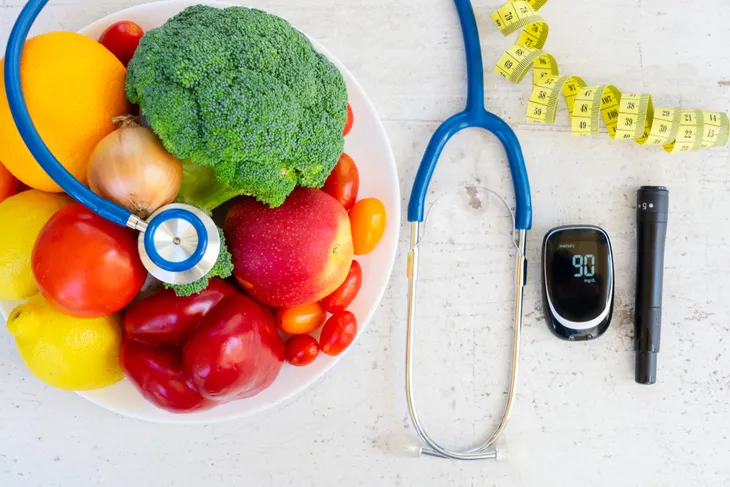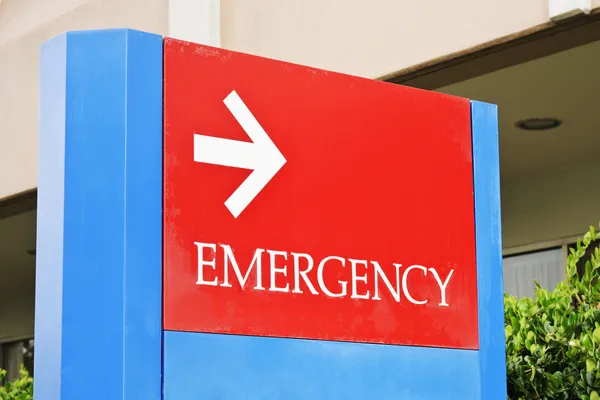Blood glucose, also known as blood sugar, is the main sugar found in your blood. It comes from the foods you eat and is your body’s main source of energy. When you check your blood sugar levels, you’re measuring the amount of glucose in your blood. Knowing if you have low or high blood sugar levels is important because it could indicate that you have an underlying health condition such as diabetes.
The goods news is diabetes can be effectively managed if it’s caught early. However, if diabetes is left untreated, it can lead to devastating complications like nerve damage, heart disease, and kidney damage. In this article, we explore what is considered normal blood sugar levels based on age. We’ll also review what is considered normal for healthy individuals versus individuals with diabetes.
Normal Blood Sugar Levels for Healthy People
So what is considered a normal blood sugar level? The ideal blood sugar level for adults after fasting (who haven’t eaten in the last eight hours) is less than 100 milligrams per deciliter (mg/dL). This applies to anyone without diabetes or prediabetes.
During an oral glucose tolerance test, you fast overnight then your fasting blood sugar is measured in the morning. “Then you drink a sugary liquid, and blood sugar levels are tested periodically for the next two hours,” reports the Mayo Clinic. Normal blood sugar levels are anything under 140 mg/dL. A reading of more than 200 mg/dL after two hours indicates diabetes. If the reading shows levels between 140 and 199 mg/dL, this indicates prediabetes.
Keep in mind, many different factors can affect your blood sugar levels throughout the day. Some of these include food, medications, age, stress, dehydration, illness, and so much more. Next, we’ll explore blood sugar charts by age for individuals with diabetes.
Normal Blood Sugar Levels for Children with Diabetes
In general, children under the age of six should have a blood sugar level that ranges from 80 to 200 mg/dL. This number will fluctuate throughout the day. Kids with diabetes or those with hypoglycemic episodes may need to have their blood sugar levels tested in the middle of the night. SingleCare tells us the normal levels throughout the day are:
- After fasting for 8-hours (80-180 mg/dL)
- Before a meal (100-180 mg/dL)
- 1-2 hours after eating (about 180 mg/dL)
- Bedtime (110-200 mg/dL)
Normal Blood Sugar Levels for School-Aged Children With Diabetes
School-aged children (ages 6 to 12) should have blood sugar levels that range from 80 to 180 mg/dL. Understanding how food, exercise, stress, and growth hormones can affect their blood sugar levels is important for managing their blood sugar. Here are the daily normal levels for school-aged children:
- After fasting for 8-hours (80-180 mg/dL)
- Before a meal (90-180 mg/dL)
- 1-2 hours after eating (Up to 140 mg/dL)
- Bedtime (100-180 mg/dL)
Normal Blood Sugar Levels for Teens With Diabetes
Normal blood sugar levels for teens (age 13 to 19) with diabetes can range between 70 and 150 mg/dL. Teens will need to monitor their blood sugar throughout the day and watch what they eat, exercise, and make sure they’re taking their diabetes medication (if they have any). Here are normal blood sugar levels for teens with diabetes:
- After fasting for 8-hours (70-150 mg/dL)
- Before a meal (90-130 mg/dL)
- 1-2 hours after eating (Up to 140 mg/dL)
- Bedtime (90-150 mg/dL)
Normal Blood Sugar Levels for Adults With Diabetes
Normal blood sugar levels for adults (20 years and older) with diabetes ranges between less than 100 to 180 mg/dL. When you wake up, your levels will be at their lowest since you haven’t consumed food overnight. Let’s take a look at the daily normal blood sugar levels for adults with diabetes:
- After fasting for 8-hours (less than 100 mg/dL)
- Before a meal (70-130 mg/dL)
- 1-2 hours after eating (less than 180 mg/dL)
- Bedtime (100-140 mg/dL)
Testing Your Blood Sugar Levels at Home
Testing your blood sugar at home will help you manage your diabetes. To test at home, you’ll need a blood sugar meter. This can test if your blood sugar levels are too low or high, monitor the effectiveness of your diabetes medication, and help you understand how other factors such as stress or illness affect your blood sugar levels.
Your doctor will be able to recommend a device for you and help you learn how to use it. They will also recommend how often you need to check your blood sugar levels at home.
Symptoms of High Blood Sugar
High blood sugar is also referred to as hyperglycemia. Some common causes of high blood sugar include stress, being sick, taking part in strenuous physical activity, eating too many carbs, or if you forgot to take your diabetes medicine.
If your blood sugar gets too high there are some warning signs to look out for. These symptoms include increased thirst frequent urination, shortness of breath, stomach pain, nausea and vomiting, feeling fatigued, sweet-smelling breath, dry mouth, and a rapid heartbeat.
Symptoms of Low Blood Sugar
In contrast, hypoglycemic refers to when your blood sugar is too low. Common symptoms include irregular or fast heartbeat, shakiness, anxiety, pale skin, fatigue, hunger, sweating, irritability, and tingling/numbness in the cheek, lips, or tongue. As it gets worse, you may also experience confusion, blurred vision, seizures, and loss of consciousness.
If you have diabetes, low blood sugar can happen without notice. Hypoglycemia is less common in people who don’t have diabetes but it can happen. Things like certain medicines, excessive alcohol drinking, critical illness, and hormone deficiency can cause low blood sugar in individuals without diabetes.
The Risks of High and Low Blood Sugar
Ignoring the signs and symptoms of high or low blood sugar can have serious consequences. Dangerously high or low blood sugar can lead to a diabetic coma.
A diabetic coma causes unconsciousness. Mayo Clinic explains, “If you lapse into a diabetic coma, you’re alive — but you can’t awaken or respond purposefully to sights, sounds or other types of stimulation.” If a diabetic coma is left untreated, it can be fatal.
This is a medical emergency. If you experience any symptoms of low or high blood sugar or you feel like you’re about to faint call 911 or your emergency hotline number.
When To See a Doctor
One of the best ways to ensure your blood sugar levels are normal is to seek medical advice from a healthcare professional. Endocrinologists might be your best option as they’re qualified to diagnose and treat conditions like diabetes.
Leaving low or high blood sugar levels untreated can have serious health complications, especially if you have diabetes. This is why seeking medical advice is important.













